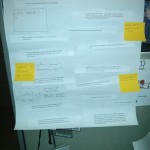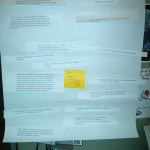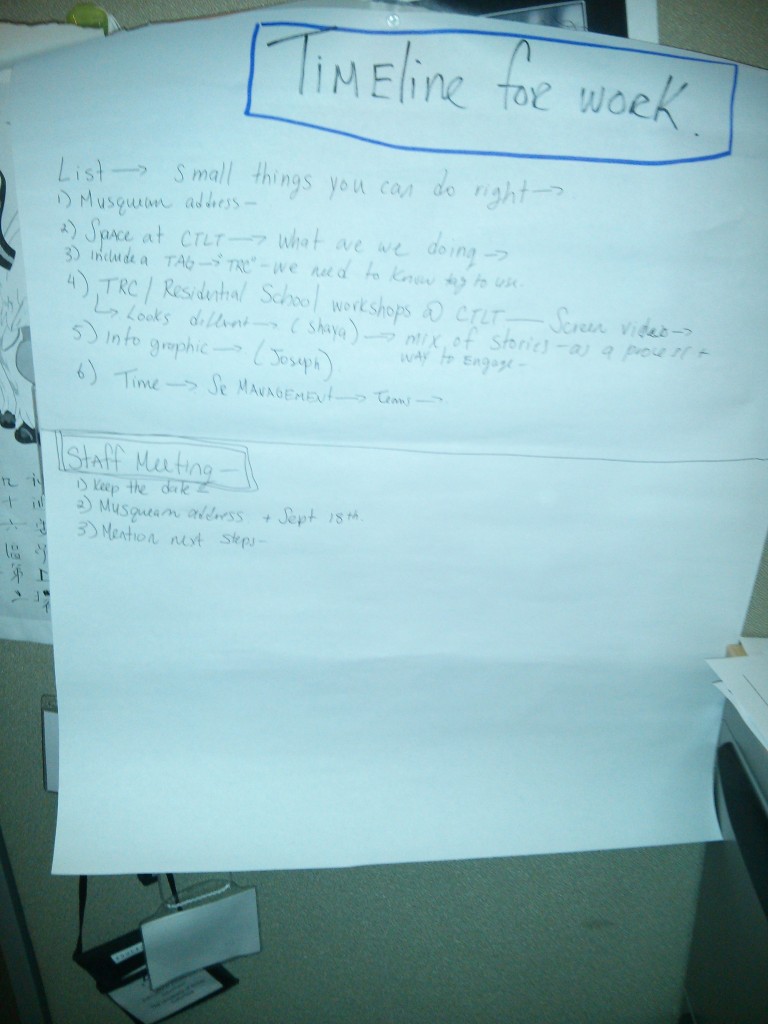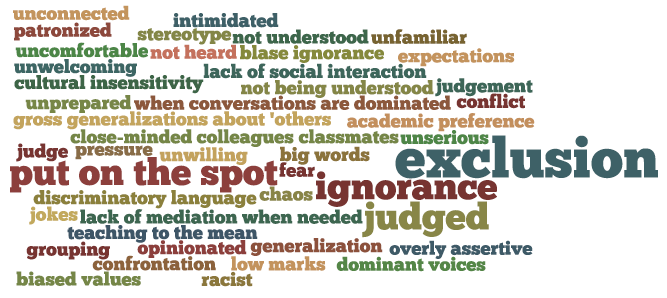One of the suggestions we made during the CTLT all-staff meeting was to include Musqueam Territory in our email signatures. It is a very small and simple act but holds symbolic value in acknowledging that we are on unceded Musqueam territory. It is part of the history and continuing story of this place we work, We are thankful to the Musqueam people for enabling us to do what we do.
A question came about on how does this affect UBC Branding Guidelines. The email branding guidelines can be found at http://brand.ubc.ca/working-with-our-brand/email/email-signatures/. If we are to follow the specifications, I suggest doing the following:
Internal Version
First Name Last Name, Credentials
Title 1, Title 2 | Centre for Teaching, Learning and Technology
The University of British Columbia | Vancouver | Musqueam Territory
Phone 604 822 1234 | Cell 778 123 4567
September 18, 2013 is the Observance of Opening of West Coast National Event of the Truth and Reconciliation Commission. Learn more at http://irsi.aboriginal.ubc.ca.
External Version
Title 1, Title 2 | Centre for Teaching, Learning and Technology
The University of British Columbia | Vancouver
123 – 4567 Street Name | Musqueam Territory, Vancouver, BC Canada V6T 1Z1
Phone 604 822 1234 | Cell 778 123 4567 | Fax 604 123 4567
first.last@ubc.ca | @UBC_CTLT
ctlt.ubc.ca
September 18, 2013 is the Observance of Opening of West Coast National Event of the Truth and Reconciliation Commission. Learn more at http://irsi.aboriginal.ubc.ca.
There is a third option for signatures with sub-identities but unfortunately, the CTLT wordmark does not work well with the “Place of Mind” logo.
Any thoughts from the team?





